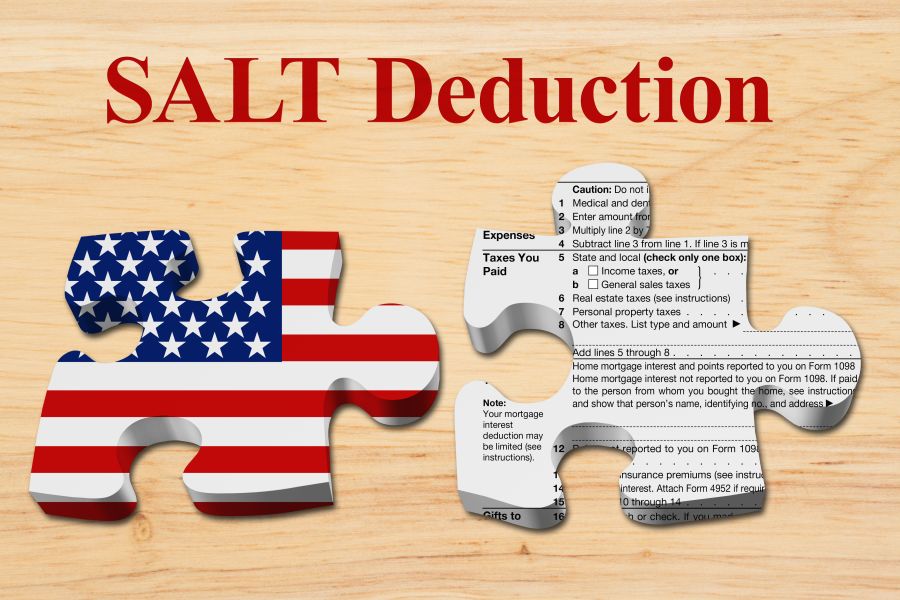Over the last two years, market conditions — from cost increases and forced shutdowns to shortages of labor and supplies — have taken their toll on many businesses. While owners of distressed businesses may hope to turn things around, some will unfortunately shutter. Valuation is a prophecy of the future, not the past. So valuing a financially troubled company requires special treatment. Diagnosing the situation Valuing a distressed business is similar in many ways to valuing a healthy one: The valuation professional evaluates financial information and examines the business and its industry to assess the company’s ability to generate earnings. But troubled companies don’t behave in quite the same way as healthy companies, so valuators must approach them a little differently. One of a valuator’s biggest challenges in...

Here are some of the key tax-related deadlines that apply to businesses and other employers during the second quarter of 2022. Keep in mind that this list isn’t all-inclusive, so there may be additional deadlines that apply to you. Contact us to ensure you’re meeting all applicable deadlines and to learn more about the filing requirements. April 18 If you’re a calendar-year corporation, file a 2021 income tax return (Form 1120) or file for an automatic six-month extension (Form 7004) and pay any tax due. Corporations pay the first installment of 2022 estimated income taxes. For individuals, file a 2021 income tax return (Form 1040 or Form 1040-SR) or file for an automatic six-month extension (Form 4868) and paying any tax due. (See June 15 for...
In today’s economy, many small businesses are strapped for cash. They may find it beneficial to barter or trade for goods and services instead of paying cash for them. Bartering is the oldest form of trade and the internet has made it easier to engage with other businesses. But if your business gets involved in bartering, be aware that the fair market value of goods that you receive in bartering is taxable income. And if you exchange services with another business, the transaction results in taxable income for both parties. How it works Here are some examples: A computer consultant agrees to exchange services with an advertising agency. A plumber does repair work for a dentist in exchange for dental services. In these cases, both parties are taxed...
Executives often receive lucrative compensation packages. But for some, it isn’t enough and they engage in illegal activities to line their own pockets. The Association of Certified Fraud Examiners (ACFE) has found that owners and executives commit 20% of occupational fraud. However, they’re responsible for the largest median loss of $600,000. (In comparison, rank-and-file employees who steal are responsible for a median loss of just $60,000.) Most organizations can’t afford such losses. Then there’s the risk of bad publicity, potential for lawsuits and demoralized employees and other stakeholders. To keep executive fraud from fleecing your company, you need to take aggressive measures to prevent it. And, if you discover fraud has already occurred, you must act quickly to contain it and hold the perpetrator responsible. Fraud triangle Some...
The credit for increasing research activities, often referred to as the research and development (R&D) credit, is a valuable tax break available to eligible businesses. Claiming the credit involves complex calculations, which we can take care of for you. But in addition to the credit itself, be aware that the credit also has two features that are especially favorable to small businesses: Eligible small businesses ($50 million or less in gross receipts) may claim the credit against alternative minimum tax (AMT) liability. The credit can be used by certain even smaller startup businesses against the employer’s Social Security payroll tax liability. Let’s take a look at the second feature. Subject to limits, you can elect to apply all or some of any research tax credit that...
(This is Blog #1180)...
As posted to the Peak Prosperity YouTube Channel on 3/23/2022 (Run Time: 52 min, 22 sec) Paraphrased from Creator-Provided Description California is facing a rash of exceptionally dangerous and poor legislation that is truly beyond belief. The only possible way to understand it compassionately is to see those elected officials proposing it as being swept up in Mass Psychosis. But compassion is not the same thing as condoning, let alone approving of, such recklessly indifferent ignorance. In this video, Chris Martenson discusses the horrendous slate of California bills (on or about 3/30/2022) with Laura Sextro, CEO and COO of the Unity Project. If California passes these laws, other states could well be next. This is a battle for the future and soul of our country, individual rights, parental...
Keeping track of every IT asset — particularly as remote work has become common — is essential if your company wants to limit financial losses and fraud risk. According to some estimates, most remote employees use at least two employer-assigned devices, and a smaller percentage use three or more. In general, the more devices in use, the greater the potential for loss or theft. But you can keep tabs on hardware such as desktops, laptops, mobile phones, tablets and the software you’ve purchased or developed to operate them, with IT asset tracking. Following is a three-step guide. (1) List Your Assets The first step involves developing a list of the IT assets you need to track. Although third-party software can help simplify this task (especially if the software...
You may have wondered why, in a given year, you may be taxed on more S corporation income than was distributed to you from the S corporation in which you are a shareholder. The answers lies in the way S corporations and their shareholders are taxed. But before explaining those rules, be assured you that when you are taxed on undistributed income, you won't be taxed again if and when the income ultimately is paid to you. Unlike a regular or C corporation, an S corporation generally isn't subject to income tax (California does charge a 1.5% entity-level tax). Instead, each shareholder is taxed on the corporation's earnings, whether or not the earnings are distributed. Similarly, if an S corporation has a loss, the loss is passed...
Back in 2017, the Tax Cuts and Jobs Act was signed into law which instituted a cap on the amount of state and local taxes (SALT) that individuals could report as Itemized Deductions on Schedule A. Starting with the 2018 tax year, the maximum SALT deduction available was $10,000. Previously, there was no limit. Since then, roughly 20 states have come up with workarounds intended to negate, or at least mitigate the effect of the SALT limitation. In 2021 California passed AB 150, which provides that, in the taxable years 2021-2025, a so-called "qualified entity" (a S corporation, partnership, or LLC taxed as a partnership or S corporation) to make an election to pay a new pass-through entity (PTE) elective tax equal to 9.3% of its...
- 1
- 2
- 3
- 4
- 5
- 6
- 7
- 8
- 9
- 10
- 11
- 12
- 13
- 14
- 15
- 16
- 17
- 18
- 19
- 20
- 21
- 22
- 23
- 24
- 25
- 26
- 27
- 28
- 29
- 30
- 31
- 32
- 33
- 34
- 35
- 36
- 37
- 38
- 39
- 40
- 41
- 42
- 43
- 44
- 45
- 46
- 47
- 48
- 49
- 50
- 51
- 52
- 53
- 54
- 55
- 56
- 57
- 58
- 59
- 60
- 61
- 62
- 63
- 64
- 65
- 66
- 67
- 68
- 69
- 70
- 71
- 72
- 73
- 74
- 75
- 76
- 77
- 78
- 79
- 80
- 81
- 82
- 83
- 84
- 85
- 86
- 87
- 88
- 89
- 90
- 91
- 92
- 93
- 94
- 95
- 96
- 97
- 98
- 99
- 100
- 101
- 102
- 103
- 104
- 105
- 106
- 107
- 108
- 109
- 110
- 111
- 112
- 113
- 114
- 115
- 116
- 117
- 118
- 119
- 120
- 121
- 122
- 123
- 124
- 125
- 126
- 127
- 128
- 129
- 130
- 131
- 132
- 133
- 134
- 135
- 136











